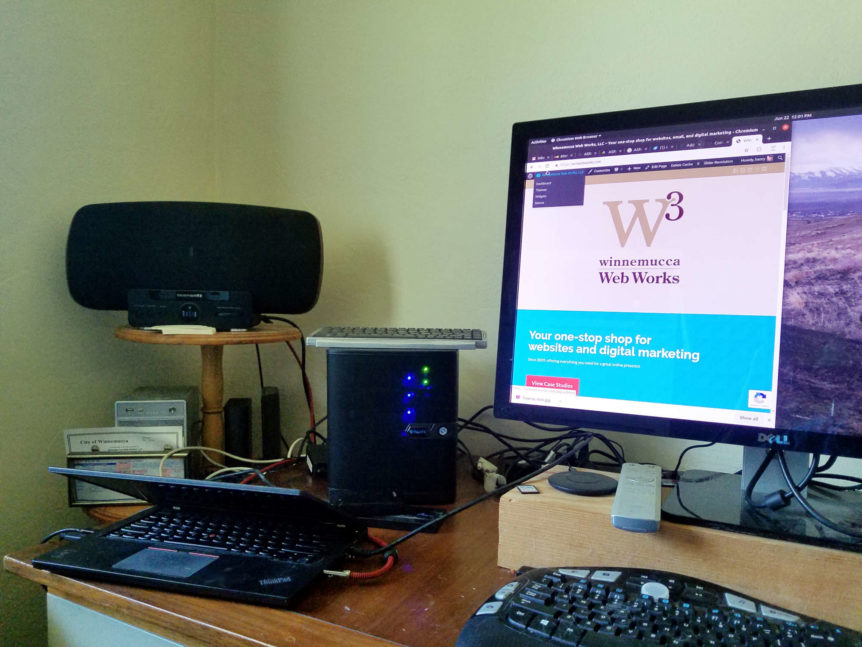Protecting customer data is a commitment we take seriously. To that end, we radically upgraded our off-site backup solution this month.
For the previous ten years or so, we used a series of Linux laptops with external drives/NAS boxes (five of which are visible in the photo above!). This approach had its advantages. It used very little power, because the laptops would sleep almost all of the time, waking as needed to accept rsync-over-ssh transfers of important server files. The laptop batteries afforded some protection from power surges and outages, combined with the low-cost battery backups on our network access equipment.
The new system is a huge improvement, though. It’s a proper storage server, an iXsystems FreeNAS mini with four 8-TB enterprise hard drives. It was pricey, and took several weeks to burn in, test, and set up. But, we think it’s a lot better.
Capacity is a chief benefit. With over 20TB of redundant data storage, we can now make off-site backups more often, and keep them around for much longer — especially since data on the new server is stored with LZ4 compression. Routine ZFS snapshots should allow us to recover even very old data.
Data integrity is another advantage. EXT4 journaling notwithstanding, our laptop backup servers were theoretically susceptible to “write holes” in the event of hardware problems like memory faults or drive errors. The new server’s “copy-on-write” (CoW) architecture was expressly designed to prevent that sort of thing.
Besides web server backups, we also use the new server to store the many documents and files customers send us during the website development process. Centralizing our files in this way increases efficiency by allowing us to work via NFS mounts from any of our local systems. It means we can now upgrade development systems without worrying about data migration. And, we will potentially be able to access work files from any remote system able to establish OpenVPN connections — including smartphones.
Finally, thanks to its 16-core Intel CPU and 32GB of RAM, the new server can handle several virtual servers. Along with a Minetest server for my son and his friends, one of the first planned add-ons will be an Ubuntu 18.04 server install I can use to try building sites locally prior to deployment. This will be especially nice when working with clients that do not host with me, as it will help keep my server’s load light while offering unparalleled speed and flexibility.
After celebrating our 10-year business anniversary in April of this year, we think our new storage server makes a great addition. We hope it helps us better serve you for the next decade or more to come.

